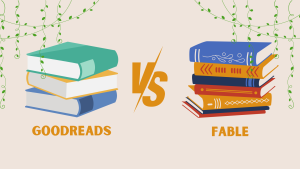Book Ban Talks Spark Criticism in Valley Journalists
‘Valley Student Journalists Discuss the Recent Book Bans’
March 25, 2022
In light of recent events on both foreign and home soil, the American public has become increasingly conscious of the rights granted by the U.S. Constitution—including the rights to freedom of speech and of the press.
Russia’s intense media censorship makes it clear these rights aren’t guaranteed in every country.
Despite this, Americans are dealing with a plethora of controversy surrounding the topic of banning works of literature in schools because of explicit or “triggering” content.
Conservative parents argue written media consumed by children (including those in high school) is dangerous and inappropriate. But their opposition finds the nature of these books instead fuels conversations about our world and the people living in it.
On the campaign trail, governor Glenn Younkin made more than 70 promises and pledges. Among his pledges to suspend or cut certain taxes, ban Critical Race Theory and eliminate Covid-19 vaccine requirements, Younkin promised to allow parents the right to review the content of literature promoted in schools—and bar media they wouldn’t want their children to read due to its nature. Already, Youngkin has made good on his promise to dispose of the mask mandate in Virginia schools.
These aren’t recent changes to Youngkin’s agenda. Youngkin made an effort to ban the book “Beloved” by Toni Morrison in Fairfax schools a few years ago. The book takes place in the aftermath of the Civil War. As slave families struggled to rebuild their lives and find their place in the increasingly segregated America, Sethe (a former slave) is haunted by the ghost of her baby, who’s grave is marked with a single word: Beloved.
Topics of race, sex, discrimination and trauma all helped “Beloved” win a Pulitzer Prize. These topics, however, are the major points of contention.
More recently, the Tennessee school board made the decision to ban another Pulitzer Prize winner, “Maus,” a graphic novel that takes place during the Holocaust. The Tennessee school board claimed the novel’s depictions of nudity were what resulted in the ban, but Jewish members of the community spoke out.
School boards across the U.S. have disputed banning the novel “Fahrenheit 451” as well. The themes of politics, ignorance, society, medication, war and mass media all contributed to discussion on the books vitality in schools. But many have argued that those are the exact themes that make the book important.
Among student journalists, talk about this controversy has been widespread, the reaction most commonly one of shock and dismay that the banning of literature is a banning of free speech.
Viking News editor Alison Pike says that without her rights to freedom of speech and freedom of the press, she wouldn’t be able to explore her passions—journalism and photography.
“As a student journalist, freedom of speech and press is everything,” Pike said. “Having the ability to express my rights is very important to me.”
For her, banning books is a quick way to limit imagination and restrict academic growth—making kids unprepared for the real world.
“The world is not rainbows and butterflies,” Pike said. “There are harmful and useful things we need to be taught.”
Pike said that the book “Turtles All the Way Down” had a notable impact on her.
“This book taught me that it is okay to have problems, whether they disable you or mentally drain you,” she said. “ The girl in the book had OCD and taught me a lot about her disabilities and made me aware that the world could be worse and life moves forward.”
Staff reporter Faith Casey believes literature is a right in public schools and everyone deserves access to books.
“Personal beliefs should not apply in a public school where everyone is welcome,” Casey said. “Banning books diminishes conversation and self-expression.”
Casey said “The Hate U Give” by Angie Thomas changed her world view. She likes it for the perspectives it offers on police brutality and racism and the effect on today’s society.
Junior Mercy Soly, a Viking News assistant editor, loves to read. She said “They Went Left” by Monica Hesse has been the most influential book she’s read.
Hesse’s novel focuses on reconstruction efforts after the Holocaust, something rarely covered in schools.
“I don’t think that people our age understand that the Holocaust wasn’t just something that began and then stopped,” Soly said. “It was a lot more than just a period in time.”
Soly said the book taught her that life isn’t a definite yes or no and that books show us that there’s so much more than life or death, and often it’s a series of many complex moments.
“That book showed me that the typical happy ending isn’t always a happy ending,” she said. “It’s not the convenience or what the crowd is rooting for. It may be the very opposite.”
And for journalists everywhere, words teach lessons on how to communicate information, learn about the world and diversify lives through literature.








